I've got this feeling that it was The Voice that started it. Perhaps the X Factor and Britain's Got Talent helped it along - although I've never really watched either of these two programs, excepts for clips here and there - but I did watch the first series of The Voice, that is, until the auditions were over and it became boring. Everyone was "amazing". Everything commendable about anyone's performance was "amazing". Will.i.am seemed to possess few, if any, alternative descriptions bar the irritatingly inarticulate "dope".
It was sudden, like thunderclap - once, the word "amazing" was used with regular irregularity, when something was indeed "amazing" - the next, it was everywhere. By the bleating sheep - it has been copied ever since.
Every judge on The Voice used "amazing" so frequently that I found myself mockingly repeating it on each occasion, usually with lazy lips, so it came out as an indistinguishable blur. The moment when I noticed that its overuse and misuse was more significant than merely my own annoyance, was when a contestant came on stage, sang to the backs of the four judges, held onto a long and distressing last note in hope of convincing one of them to press their buzzer - but alas it did not happen. With the end of the performance, the judges gave their critique of the performances - I was literally amazed that all four judges, at some point in their description, used the word "amazing".
Now, let's look at this for a second: all four judges thought that he was amazing, but not one turned around to solicit representation at the next stage of the competition, which will continue with multiple knockout rounds, until one star remains, who will then go on to be massively disappointed with their meagre level of success. This amazing performer wasn't even invited to onto the second rung of this ultimately disappointing process - he was nonetheless deemed "amazing".
Etymologically, to "amaze" means to stupefy - there is a consensus belief that the word "maze", and the object thereof, is derivative of "amaze", rather than the other way round. "Amazing" therefore, in it's current guise, ordained the metaphorical meaning of being "over-whelmed with wonder." The mind becomes stupefied by the sheer mind-boggling astonishment of the subject that we are describing. Do you see where I am going with this?
The profound and prophetic novel 1984 is undoubtably one of the best of the 20th century. Newspeak is one of themes that runs through the book and involves the vast array of descriptive words - the subtly varying treasure-trove of superlatives - being stripped away and replaced with good, plus-good, double-plus-good etc. Orwell's point was that to comprehend the complexity of the world - indeed to recognise the tyranny and manipulation of large-scale civilisation, the brain needs sophisticated tools of distinction and description so as to be able to define and decode the cornucopia of experience that existence has to offer. Without them, we slide slowly into ignorance, servitude, then totalitarianism.
Although there might not be a recognised "Ministry" where the implementation of Newspeak is administered; nor do we use terms such as double-plus-good - we are nonetheless conflating words like amazing with "good". Not even "great"! If you take the story on The Voice, "amazing" does't even mean good enough to make the second round of a third-rate competition. "Amazing" is one of the tools we have to precisely describe that which is so impressive, so extraordinary, that our minds are literally overwhelmed and lost in the maze it incredulity But it is fast becoming vague, indistinct and a grey dish-water word that means nothing and everything. It's "amazing" now - what word next? Possibly "fantastic" - I'm hearing this used more loosely as of late - another word with specific and impressive connotations that shouldn't be watered down to fit quite ordinary scenarios.
Ludwig Wittgenstein, the influential German Philosopher of the early 20th Century, claimed that the "logic of our language is the logic of our world". He wrote extensively about the fluidity of definition and meaning. Language is given value by it's application, similarly to how pieces are given value in a board game by the moves they can make - all pieces, all words have legitimate move and illegitimate moves - the definition resides somewhere within. Subtle differences in the meanings of adjectives give us more mental moves - a greater number of caveats and niches - they enable us to perform greater feats of mental acrobatics - but once the superlatives become subsumed into the actions, activities and subject that are, in actual fact, far more commonplace - we rob ourselves of the concepts necessary to think bigger thoughts and comprehend new ideas that really are "amazing."

